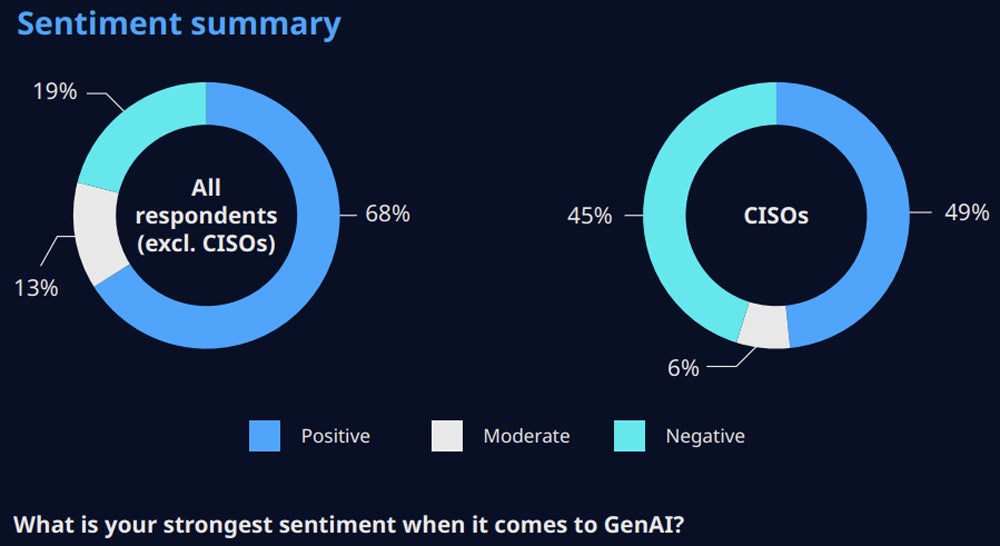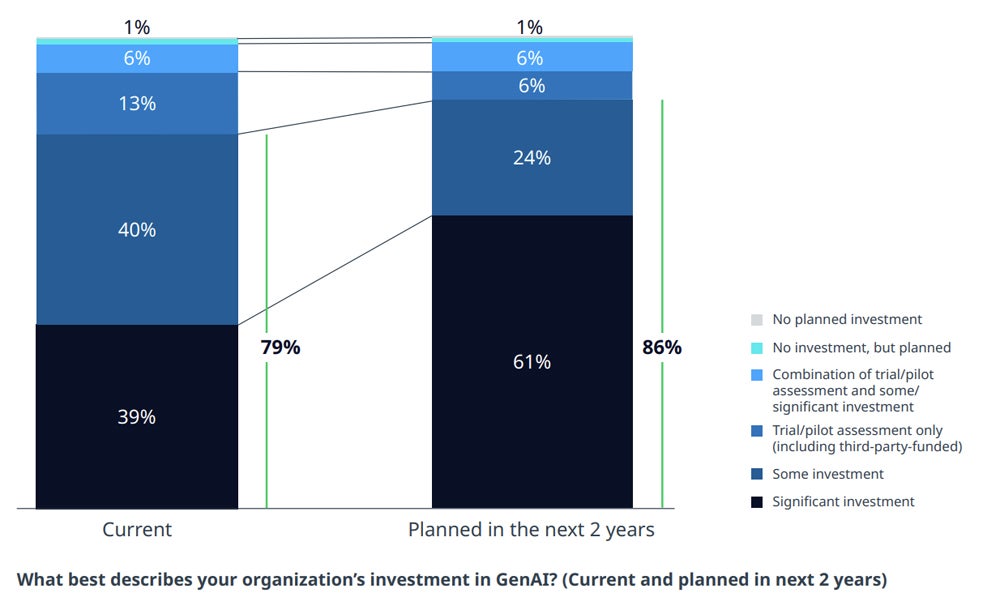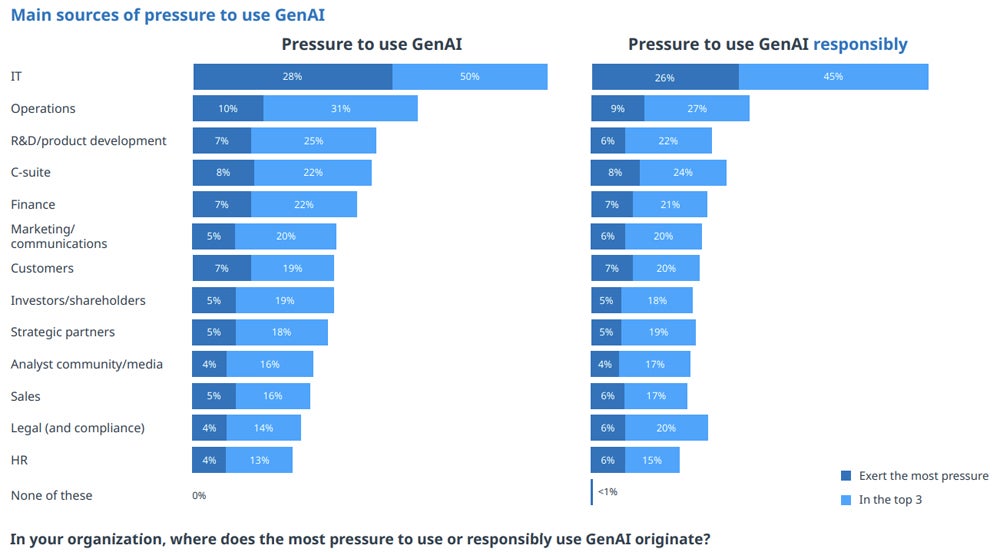
Security and infrastructure are two of the top concerns for organisations rolling out generative AI, according to a recent report from IT company NTT Data. However, most companies are optimistic about its future potential.
The Global GenAI Report, based on responses from 2,307 generative AI decision-makers and influencers, primarily from large organisations globally, found that CISOs are the executives most pessimistic about the technology. Many CISOs (45%) held negative sentiments about generative AI because they were “feeling pressured, threatened and overwhelmed” by it.
Only 19% of total respondents from various roles shared the same sentiment as CISOs. “CISOs are uniquely positioned to anticipate risk — and it is clear they see it [in Generative AI],” the report stated.
Among CISOs, one in three said they are uncomfortable with the “black box” nature of some generative AI models and its “unclear decision-making algorithms,” the report found. However, CISOs aren’t the only group harboring concerns about AI:
Chief data officers are particularly hesitant about GenAI. Nearly half of them viewed a lack of transparency and the difficulty in explaining the reasoning behind complex generative AI models as issues affecting their own adoption. Additionally, 86% of all respondents and 96% of chief data officers agreed that algorithm bias remained pervasive in current models.
SEE: Nearly half of security professionals believe AI is risky
Despite some negative attitudes toward AI, the report found that most executives are positive about the technology overall: 60% believe it will be a “game changer” within two years.
According to the report:
The C-suite overall is also expecting big impacts from generative AI; 97% of CEOs expect a material impact from the technology, while 99% of organisations are planning to invest more in AI.

NTT Data’s report claims that “playtime is over” for AI, as organisations shift from conducting less experimentation and more identifying tangible successes that can be taken into production.

Nearly nine in 10 of the respondents surveyed said they were actually experiencing “pilot fatigue” and were shifting their focus to areas where generative AI has had a proven impact on business performance.
SEE: 5 generative AI trends in 2025
Looking forward, NTT Data said six in 10 leaders expect a significant transformation from major investment in generative AI in 2025, but 83% accept return on investment will be unclear for the foreseeable future.
“Focused spending plans will replace scattered experimentation as organisations look to improve internal operations through more precise experiments. These will aim to transform back-office and middle-office workflows and create new digital products and services with the potential to scale,” the report said.
NTT Data predicts that successful experiments will reignite investment in generative AI as CEOs gain clearer evidence of its potential to boost revenue and productivity.